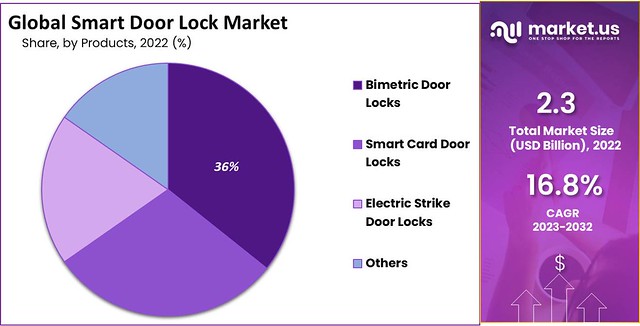Choosing an Electric Boiler Supplier
In industrial settings, electric boilers can be a great solution to reduce fossil fuel use and lower emissions. With the right supplier, these systems can offer energy efficiency, reliability, and safety.
They also provide a low cost option for facilities seeking to reach net zero goals. The following points should be taken into consideration when selecting an electric boiler supplier:
Cost
The price of a boiler varies widely, depending on the size and type. Larger boilers cost more to install than smaller ones, as they need to generate more heat. A home’s energy efficiency is also a factor; a higher AFUE rating can cut heating costs by 15% or more. Some manufacturers offer deals during specific seasons or around holidays, which may help lower prices.
The cost of a boiler also depends on the fuel type, brand, electric combi boiler suppliers and installation needs. For example, a gas boiler requires a gas line, which can increase the total cost of the installation. Additionally, the cost of installing a programmable thermostat increases the total cost. Adding insulation to your home is another way to reduce the cost of a new boiler. It will keep the heat inside, and your system won’t have to work as hard.
Electric boilers are more affordable than their gas counterparts and connect directly to your home’s electrical system. They are less expensive to operate than gas boilers, and they don’t need a flue or chimney for exhaust. This makes them ideal for apartment buildings and rural areas. They also operate silently, a significant advantage over other types of boilers. They do not produce a lot of waste, and they don’t produce carbon monoxide, which is a serious health risk.
Energy Efficiency
The fundamental operation of electric boilers involves converting electrical energy into heat to generate steam or hot water. This process takes place inside the boiler, which contains heating elements made from materials like stainless steel and copper. These elements are activated when an electric current flows through them, which creates heat that is transferred to the surrounding water. The electricity used to power the boiler is drawn from the electrical grid, and can be sourced from renewable sources, which helps reduce greenhouse gas emissions.
Commercial electric boilers offer many benefits for businesses seeking to achieve sustainability goals and lower operational costs. These include zero site emissions and the ability to run on a variety of electricity rates, including off-peak pricing. They also help companies avoid the cost of securing gas contracts, which can be pricey in some markets.
In addition to the financial benefits of switching to an electric boiler, they can also help companies fulfill their corporate social responsibility (CSR) commitments. For example, some government programs encourage the use of electric boilers by offering incentives for purchasing them. These include tax credits, rebates, and reduced electricity rates during off-peak hours.
The main drawback of an electric boiler is that it requires a dedicated electrical circuit to operate safely. It is advisable to consult an electrician to ensure that the supply circuit is correctly rated for the boiler. This is important because if the circuit is overloaded, it could result in damage to the boiler and potentially blow the property fuse.
Safety
Electric boilers require a dedicated electrical circuit to safely supply them with power. They also require a correctly rated isolation switch. A qualified electrician will be able to specify and install the correct switch to ensure that the boiler receives a safe amount of power without overworking the heating elements.
Boilers use resistance elements to heat water and create steam for various commercial and industrial applications. This technology is particularly appealing to many businesses that are focused on reducing their carbon footprint and demonstrating environmental consciousness. It is also ideal for facilities with limited or restricted access to fossil fuels or where regulations regarding emissions are particularly strict.
The main components of an electric boiler are the resistance elements, the water tank or pressure vessel and the control system. The resistance elements are made of metals such as stainless steel and Incoloy that can withstand high temperatures. When electricity passes through them, they heat up and transfer the heat to the water. The water is heated to the saturation point or boiling point and the resulting steam is used for heating, cooling or other applications.
Electric boilers are rated at close to 100% efficiency, meaning that almost all the electricity that they consume is converted into heat energy. This helps to optimize energy consumption and reduces operational costs. They also do not produce harmful gases and require less space than their gas counterparts. However, they do need proper ventilation to prevent overheating.
Installation
If you’re thinking of installing an electric boiler in your home, you’ll want to hire a professional to do the work. They can install the new boiler, seal off the old flue, cap off the gas line, and wire in the new unit. They can also help you select a programmable thermostat to save energy and money. This will allow you to set the times that you need the heating system to turn on or off, saving money on electricity bills.
Another benefit of electric boilers is that they’re less expensive to operate than traditional fuel-heated models. They don’t require a chimney, venting, or a electric tankless boiler fuel tank. Additionally, they don’t emit carbon monoxide or other harmful gases, making them safer and healthier to use than a gas model.
Boilers are available in a variety of sizes and voltages to suit any application. They can also be installed indoors or outdoors. If you’re unsure of which type to choose, contact a boiler manufacturer for advice. They can provide you with all the information you need to make an informed decision. They will also help you determine the size of your home’s power supply and the output you need for your electric boiler. This will ensure that your boiler is a good fit for your home. In addition, you should get your boiler serviced regularly to keep it in good condition.

